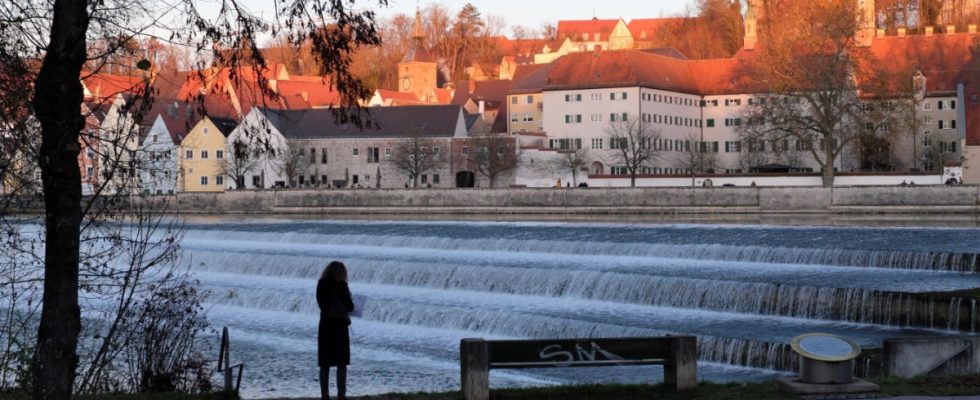The Lech was once a raging wild river, today it is a single chain of barrages, reservoirs and hydroelectric power plants. With the exception of a few sections such as the Litzauer Loop, it is considered the worst built and concreted river in Bavaria. Its ecological condition is poor. In a few years, a window of opportunity will open up for a comprehensive renaturation of the Lech, as called for by the EU in its Water Framework Directive from 2000: because then the concessions for many Lech power plants will expire and they will have to be renegotiated. From the perspective of the Federal Nature Conservation Agency (BN), this is an opportunity to advance the restoration of the Lech. The organization presented a concept for this some time ago. It is called the “Bavarian Lech Future Program”. Now BN boss Richard Mergner has called on the state government to develop its own “target concept” for the Lech.
“The Lech definitely needs more dynamism, it has to become a flowing river again,” said Mergner during a tour of the Lech near Dornstetten, a small town between Schongau and Landsberg am Lech. The Uniper power plant group operates a hydroelectric power station at the barrage there; the concession for this expires in 2034. In the same year, the concessions for the hydroelectric power plants in Landsberg, Pitzling, Lechmühlen and Lechblick end, followed by Apfeldorf in 2035 and Epfach in 2039. The new contracts are usually negotiated long before the expiry date of the old ones. The operators of the systems can be obliged to take renaturation measures.
From the BN’s perspective, the Lech can no longer just be a supplier of electricity in the future, it must also fulfill many other functions – “for local recreation, flood protection and nature conservation,” as association leader Mergner said. In any case, a few additional fish ladders at the barrages are not enough. From the BN’s point of view, the so-called debris plays a central role in all restoration measures. This is the rubble that the Lech would actually transport from the Alps downstream to its mouth in the Danube using the power of its water. But it can’t pass the barrages, so it no longer works. The result: especially in the lower reaches, the river bed deepens and becomes more and more unstable.
“The Lech definitely needs more dynamism,” says Richard Mergner from the Federation for Nature Conservation.
(Photo: Felix Hörhager/dpa)
From the BN’s point of view, no less important is an upgrading and, above all, expansion of the floodplain landscapes on the Lech that only exist in remnants – be it through the relocation of dams and dikes, a reconnection of old floodplain waters and the like. The river floodplains are not only important habitats for many rare animal and plant species such as the spotted grasshopper, the large stonefly and the German tamarisk. They also play a central role in protecting against floods and as a water reservoir for the increasingly frequent periods of heat and drought. They are also important for the groundwater balance in the region and therefore central to the drinking water supply. A number of Lech communities get their drinking water from the Lech groundwater.
Despite all their demands, they also know from the BN that Lech will always remain an electricity supplier. And they don’t completely reject it either. “But with a renatured Lech, some of the systems will look and function differently than they do today,” said BN boss Mergner. This means conflicts with the operators of the existing systems are inevitable. Because they don’t just want to use the existing power plants for as long as possible. Sometimes they even have plans for new ones. The Uniper company, for example, which already operates 22 hydroelectric power plants on the Lech, is currently examining the installation of a turbine in a Lech bed sill near Augsburg. The project is located in a section of the river that will soon be renaturated. Of course, the Federal Nature Conservation Association and other associations and organizations categorically reject the plans. The city of Augsburg has also spoken out against it.

